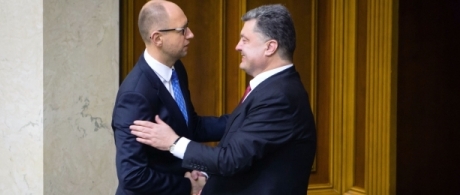
Ένα καρότσι σε σούπερ μάρκετ γεμάτο με προϊόντα στο Walmart στο Πεκίνο, στις 18 Φεβρουαρίου 2014. (Kim Kyung Hoon / Courtesy Reuters)
«Εμείς θα προχωρήσουμε με την μεταρρύθμιση και τα ανοίγματα, χωρίς δισταγμό», δήλωσε ο πρόεδρος της Κίνας, Xi Jinping, στους κορυφαίους ηγέτες τής χώρας του σε ένα συνέδριο τον περασμένο μήνα, που σηματοδότησε την 110η επέτειο της γέννησης του προκατόχου του, Deng Xiaoping. Με την πρώτη ματιά, η υπόσχεσή του φάνηκε ειλικρινής. Στα δύο χρόνια από τότε που ανέλαβε τα καθήκοντά του, ο Xi έχει υποστηρίξει με συνέπεια ένα πρόγραμμα μεταρρυθμίσεων που προορίζεται να συνεχίσει την οικονομική αναζωογόνηση και την αναδιάρθρωση που ξεκίνησε ο Deng το 1978. Η εκστρατεία τού Xi περιλαμβάνει σχέδια για την μείωση των κυβερνητικών παρεμβάσεων στην οικονομία, καθιστώντας ευκολότερο για τις επιχειρήσεις τού ιδιωτικού τομέα να ανταγωνίζονται με τις κρατικές επιχειρήσεις και επιτρέποντας στις εταιρείες και τους ιδιώτες να επενδύουν και να δανείζονται πιο ελεύθερα.


